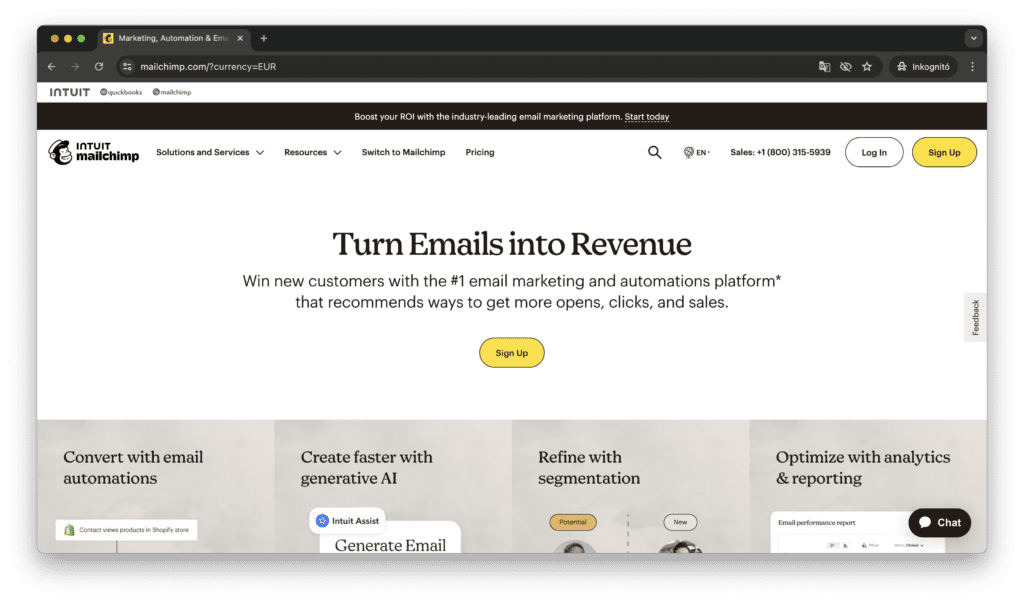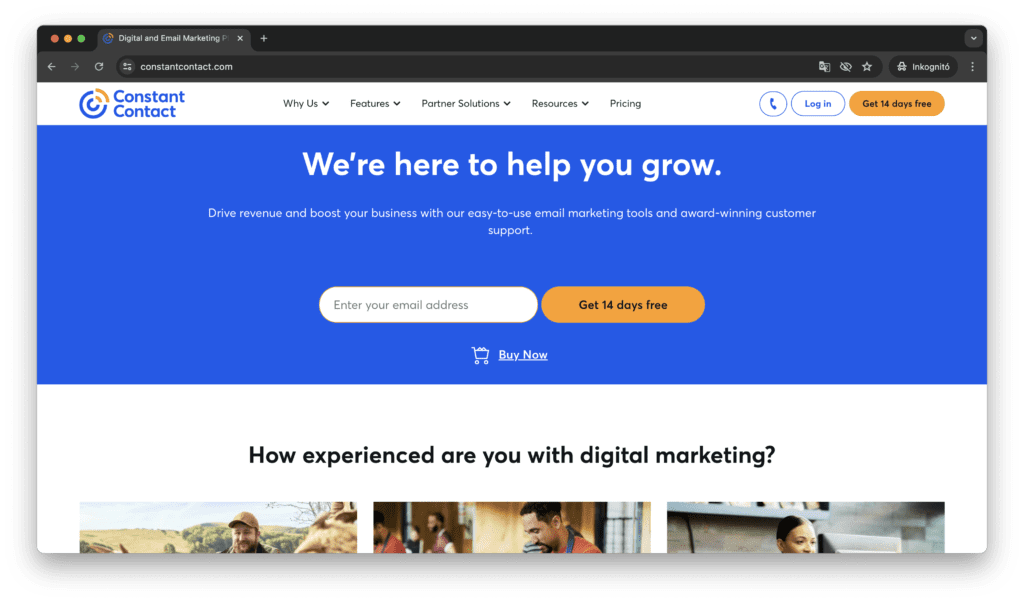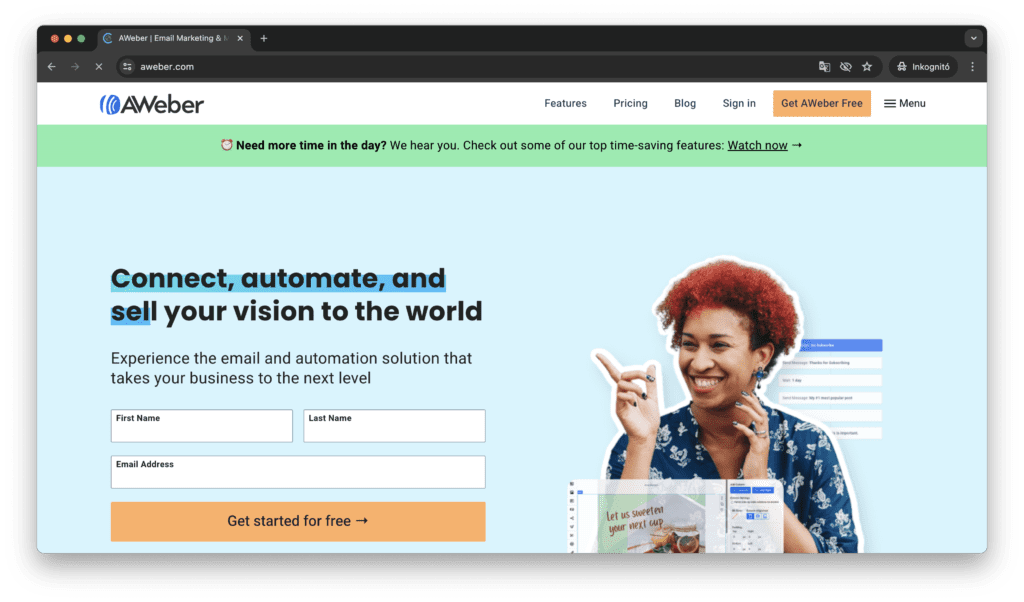Email marketing remains a highly effective way for small businesses to engage with customers, nurture leads, and drive sales. With numerous platforms available, choosing the right one can be challenging.
Here’s a detailed guide to the top five email marketing platforms best suited for small businesses, highlighting their key features, benefits, and pricing.
Table of Content

1. Mailchimp
Mailchimp is one of the most popular email marketing platforms, especially among small businesses. Known for its user-friendly interface and robust features, it offers various tools to create, send, and analyze email campaigns.
Key Features
- Drag-and-Drop Editor: Easily design professional emails without any coding skills.
- Automation: Set up automated email sequences for welcome series, abandoned cart reminders, and more.
- Audience Segmentation: Target specific groups within your email list for more personalized campaigns.
- Integrations: Connect with various platforms, including e-commerce sites, social media, and CRM systems.
- Analytics: Track open rates, click-through rates, and other important metrics.
Benefits
- Ease of Use: Intuitive interface makes it accessible for beginners.
- Comprehensive Free Plan: Suitable for businesses just starting with email marketing.
- Scalability: Advanced features available for growing businesses.
Pricing
- Free Plan: Up to 2,000 contacts and 10,000 emails per month.
- Essentials Plan: Starting at $9.99/month for 500 contacts.
- Standard Plan: Starting at $14.99/month for 500 contacts.
- Premium Plan: Starting at $299/month for 10,000 contacts.

2. Constant Contact
Constant Contact is a reliable email marketing platform known for its excellent customer support and extensive range of features tailored for small businesses.
Key Features
- Customizable Templates: A wide selection of templates that can be easily customized.
- Email Automation: Create automated workflows for birthdays, anniversaries, and more.
- Event Marketing: Tools to create and promote events, manage registrations, and collect payments.
- List Management: Easily segment and manage your email lists.
- Reporting: Detailed analytics to measure campaign performance.
Benefits
- User-Friendly: Simple to use, even for those with no prior experience.
- Great Support: Access to live chat, phone support, and a comprehensive knowledge base.
- Event Management: Unique tools for promoting and managing events.
Pricing
- Email Plan: Starting at $20/month for up to 500 contacts.
- Email Plus Plan: Starting at $45/month for up to 500 contacts.

3. Brevo (formerly Sendinblue)
Sendinblue offers a versatile email marketing solution with additional features for SMS marketing and CRM, making it a great choice for small businesses looking for an all-in-one platform.
Key Features
- Drag-and-Drop Editor: Design responsive emails easily.
- Marketing Automation: Advanced automation capabilities for lead scoring, workflows, and more.
- SMS Marketing: Send SMS campaigns alongside email campaigns.
- CRM Integration: Built-in CRM to manage customer relationships.
- Transactional Emails: Tools for sending order confirmations, shipping notifications, etc.
Benefits
- All-in-One Solution: Combines email, SMS, and CRM in one platform.
- Affordable: Competitive pricing with a robust free plan.
- Advanced Automation: Powerful automation features typically found in higher-priced plans.
Pricing
- Free Plan: Unlimited contacts, up to 300 emails per day.
- Lite Plan: Starting at $25/month for up to 10,000 emails per month.
- Premium Plan: Starting at $65/month for up to 20,000 emails per month.
- Enterprise Plan: Custom pricing for advanced features and higher volumes.

4. AWeber
AWeber is a well-established email marketing platform that focuses on simplicity and delivering powerful features that are particularly beneficial for small businesses and entrepreneurs.
Key Features
Drag-and-Drop Builder: Easily create visually appealing emails.
Autoresponders: Set up automated email sequences to nurture leads.
Subscriber Segmentation: Target specific segments of your email list.
Integrations: Works with a wide range of e-commerce platforms, landing page builders, and more.
Analytics: Detailed reports to track email performance.
Benefits
- Ease of Use: User-friendly interface suitable for beginners.
- Reliable Deliverability: High deliverability rates ensure your emails reach the inbox.
- Comprehensive Support: Access to webinars, tutorials, and customer support.
Pricing
- Free Plan: Up to 500 subscribers and 3,000 emails per month.
- Pro Plan: Starting at $19.99/month for up to 500 subscribers.

5. ConvertKit
ConvertKit is a popular choice among bloggers, creators, and small businesses focused on content marketing. It offers powerful automation features tailored to the needs of content creators.
Key Features
- Visual Automation Builder: Create complex email sequences with ease.
- Subscriber Tagging: Tag subscribers based on their actions and interests.
- Landing Pages: Create landing pages to grow your email list.
- Forms: Design and embed customizable forms on your website.
- Integrations: Connect with various tools like WordPress, Shopify, and more.
Benefits
- Designed for Creators: Tailored features for bloggers, YouTubers, and other content creators.
- Powerful Automation: Advanced automation capabilities without complexity.
- Simple Interface: Clean and easy-to-navigate interface.
Pricing
- Free Plan: Up to 300 subscribers.
- Creator Plan: Starting at $15/month for up to 300 subscribers.
- Creator Pro Plan: Starting at $29/month for up to 300 subscribers.
Conclusion
Choosing the right email marketing platform is crucial for the success of your small business’s digital marketing efforts. Each of these platforms — Mailchimp, Constant Contact, Brevo, AWeber, and ConvertKit — offers unique features and benefits tailored to different needs and budgets.
Understand your specific requirements, goals, and resources to select the platform that best aligns with your business strategy.
By leveraging the right tools, you can create effective email marketing campaigns that engage your audience, build customer relationships, and drive business growth.